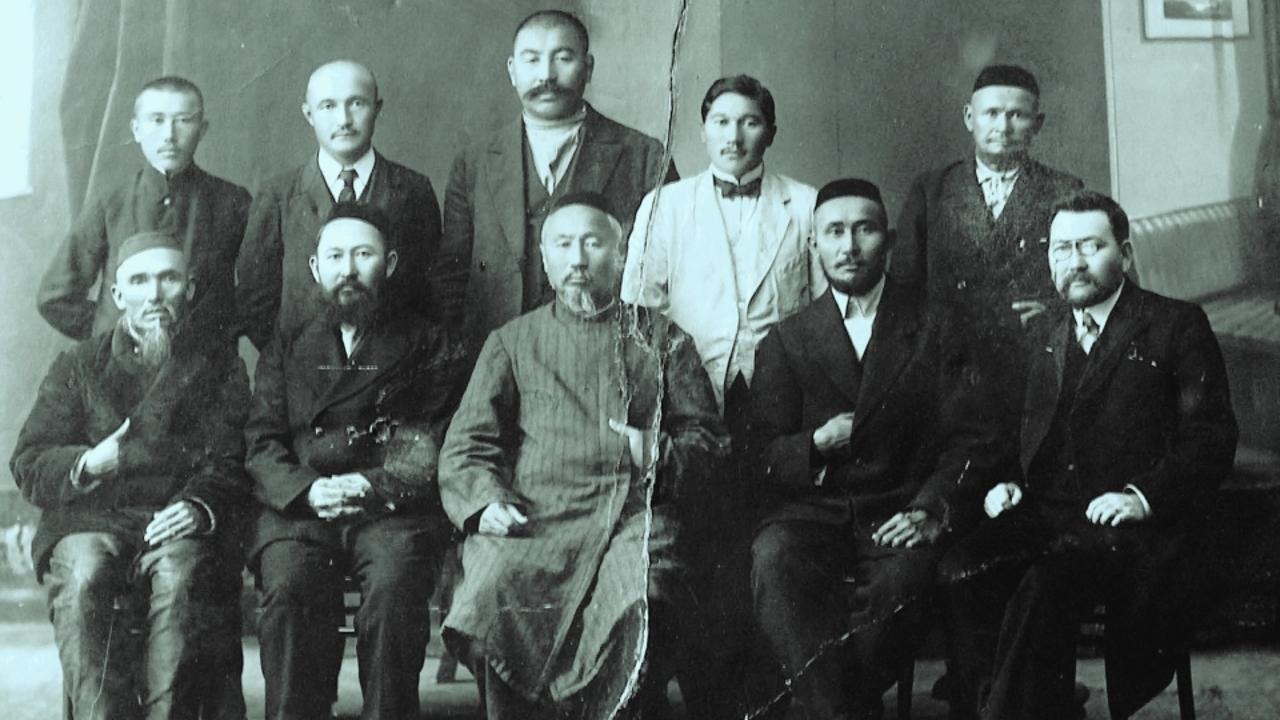
106 Years of Alash Autonomy

Alash is the name of the mythical ancestor of the Kazakhs, taken to denote the socio-political movement, which later took shape in the party. In his articles, Alikhan Bukeikhanov, one of the leaders of this party and the future autonomy, wrote that Kazakhs had used the word “Alash” as a war cry in battles for centuries. Alash-Orda is the name of the government (People's Council) of the national-territorial autonomy, formed in December 1917 on the territory of modern Kazakhstan.
According to folk legends, Alasha Khan was the first Kazakh ruler, and the people he united received the name Alash. One of the traditional folk beginnings that preceded the legends reads, “When Alash became Alash, when Alasha became the Khan.” We can say “Alash” is an endonym (self-name), while the word “Kazakh” is an exonym (name given by neighboring peoples). As is often the case in history, the latter exonym over time prevailed and established itself as a self-name. But the word Alash remained in memory as a solemn, exalted name of the people and was accordingly applied in public speeches and literary works.
So the brand (may the traditionalists forgive me) was chosen very well.
The Alash party emerged from the national movement of the Kazakh intelligentsia, which representatives fought for the rights of the Kazakh population to land, self-government, preservation of national language, culture and traditions. They were members of the first two State Dumas of the Russian Empire and took active part in the main political events of that time. For example, Alikhan Bukeikhanov was one of the leaders of the Cadets.
Perhaps the agrarian question turned to be the most acute. Leaders of the Alash movement opposed the resettlement policy of the tsarist government and the seizure of land of the indigenous population in favor of the settlers. They sought for the Kazakh population to obtain its right to own land. In 1913, the main backbone of the future party grouped around the newspaper Kazakh (founders Alikhan Bukeikhanov, Akhmet Baitursynov and Mirzhakyp Dulatov). The authors published articles to popularize culture and science and cover issues of history, and also supported and developed literature in the Kazakh language.
After the February Revolution of 1917, many leaders of the movement became part of the authorities of the Provisional Government; Bukeikhanov acted as the commissioner of the Turgai region, while Baitursynov and Dulatov worked in the land administration. Local self-government bodies—Kazakh committees—began to form simultaneously with the bodies of the Provisional Government in the Steppe Territory and Turkestan. In spring and summer of 1917, regional Kazakh congresses were held in various regions of Kazakhstan (the largest in Turgay gathered 300 delegates). Preparations for the organization of the All-Kazakh Congress began. At the same time, the idea of creating a national party was put forward. The Kazakh newspaper wrote in those days, “programs of other parties do not meet the interests of the Kazakh society.” All the regions of Kazakhstan sent their representatives to attend the first All-Kazakh Congress, held in Orenburg on July 21–28, 1917. Those decided to establish a separate Kazakh political party called Alash, and proposed a list of candidates to participate in elections to the Constituent Assembly (All-Russian Parliament).
The name “Alash” embodied both the idea of uniting all Kazakh lands under the leadership of a single ruler, and the dream of Kazakh statehood as the main tool in the system of protecting national interests. The ideas of liberation and equality of peoples attracted prominent cultural figures of the Steppe to the ranks of the movement, such as the elder of Kazakh poetry Shakarim, the young talented poet Magzhan Zhumabayev and many others.
Despite its short existence, Alash autonomy and the Alash-Orda movement had a great influence on the history of Kazakhstan. The leaders of Alash had for the first time put forward the idea of creating a sovereign Kazakh state. The people of Alash-Orda have made great efforts for the growth of self-consciousness and culture of the Kazakhs. Despite the defeat in the Civil War, the Alash intelligentsia did not abandon the idea of creating Kazakh autonomy within the framework of the Soviet state. Representatives of Alash worked in the Kazrevkom and the Kyrgyz representation at the All-Russian Central Executive Committee. These structures have implemented a great job of preparing the Soviet autonomy proclamation for the Kazakh people.
Author: Moldir Adamzhan